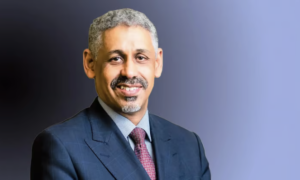- Poor HIV, TB, Malaria Outcomes
BY BONNY AMADI WITH AGENCY REPORTS
The Nigerian House of Representatives on Tuesday resolved to investigate the utilisation of over $4.6 billion in health grants and assistance received by Nigeria from the Global Fund and the United States Agency for International Development (USAID) between 2021 and 2025.
The resolution followed the adoption of a motion of urgent national importance moved by Philip Agbese (APC, Benue), the deputy spokesperson of the House, during plenary.
The motion came as a result of concerns over Nigeria’s persistent poor health outcomes despite the huge financial inflows.
The country’s health system has long faced scrutiny over the management of donor funds.
Despite being among the largest recipients of Global Fund and USAID assistance in Africa, reports continue to highlight weak accountability frameworks, fund leakages, and delays in programme implementation.
Presenting the motion, Mr Agbese noted that Nigeria received an estimated $1.8 billion from the Global Fund between 2021 and 2025 to fight HIV, tuberculosis (TB), and malaria, in addition to $2.8 billion in health assistance from USAID covering various health threats such as HIV, malaria, polio, and tuberculosis between 2022 and 2024.
He added that the Global Fund to Fight AIDS, Tuberculosis and Malaria, established in 2002, was created to accelerate global efforts to end these epidemics, particularly in sub-Saharan Africa, through pooled financing and partnerships.
Mr Agbese further stated that Nigeria has also benefited from over $6 billion in assistance from the U.S. President’s Emergency Plan for AIDS Relief (PEPFAR) between 2021 and 2025 for HIV/AIDS control and strengthening health systems across the country.
“Nigeria also received over $6 billion dollars in health assistance from the US Presi- dent’s Emergency Plan for AIDS Relief from 2021 to 2025 to fight HIV/AIDS and build the capacity of Health and community Systems,” he said.
The lawmaker expressed concern that despite these significant interventions, Nigeria continues to bear one of the highest global burdens of HIV, tuberculosis, and malaria.
According to the data he cited, in 2023 alone, about 15,000 children (aged 0–14 years) died from AIDS-related causes in Nigeria, while 51,000 AIDS-related deaths were recorded nationwide, placing Nigeria third globally in HIV deaths and with the highest number of HIV cases in West and Central Africa.
In tuberculosis, Mr Agbese noted that Ni- geria ranks first in Africa and sixth in the world, accounting for 4.6 per cent of the global TB burden, while in malaria, the country bears the highest burden worldwide, representing 26.6 per cent of global cases and 31 per cent of global malaria deaths.













